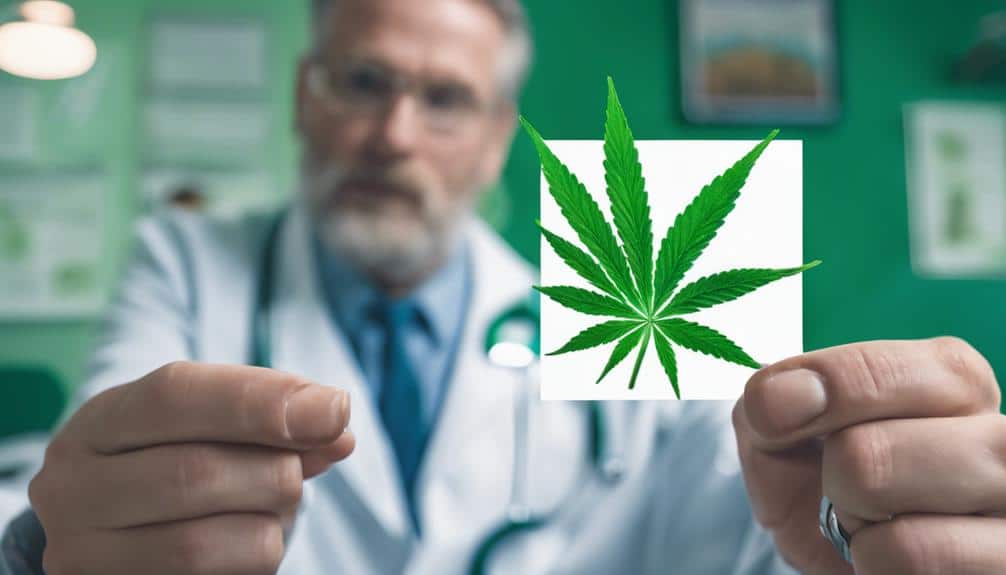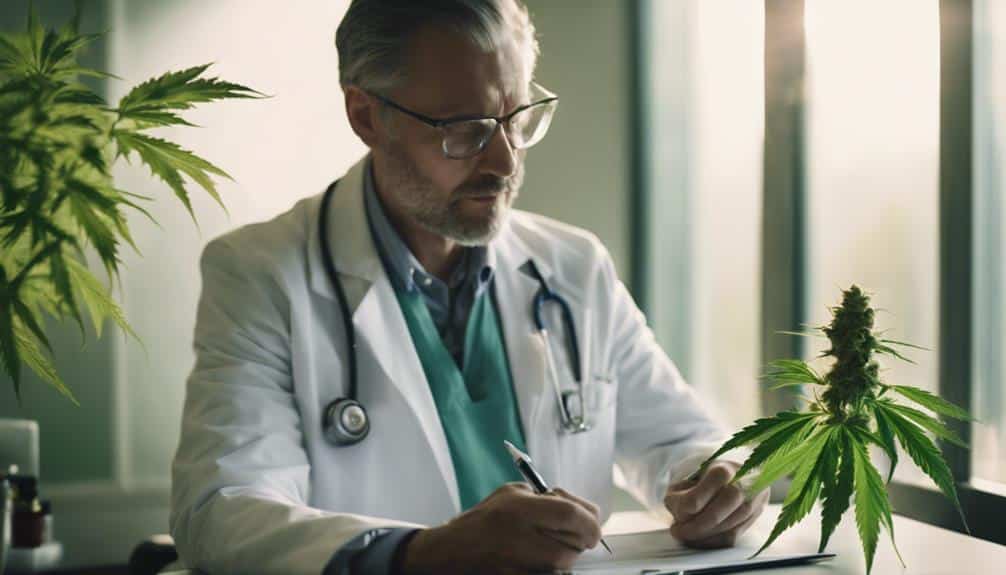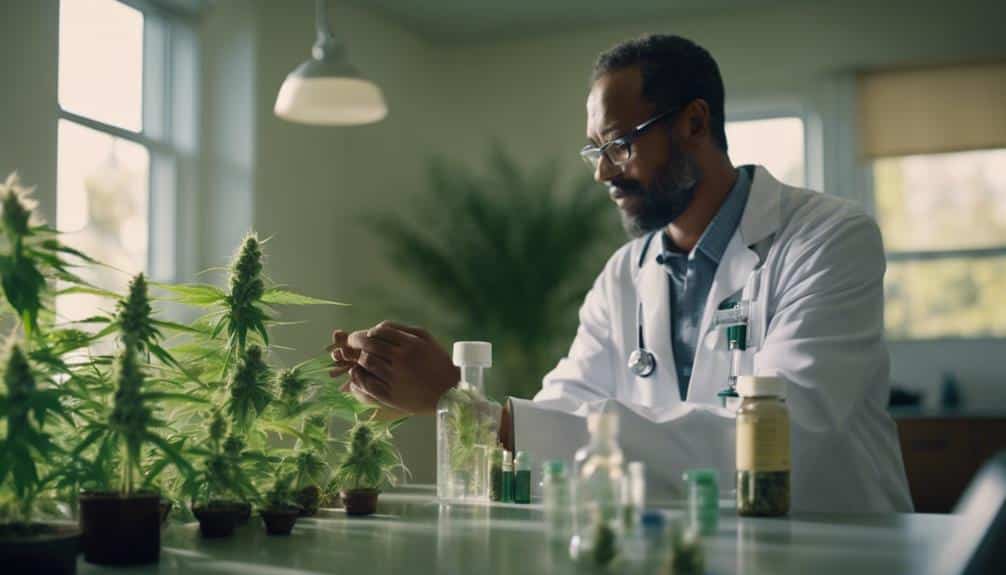Delaware’s new guidelines for medical marijuana and mental health present a structured approach aimed at treating anxiety disorders, PTSD, and major depressive disorder. These guidelines emphasize accurate dosing, thorough patient monitoring, and mandatory training for healthcare providers. They also stress the importance of transparent patient education on the benefits, risks, and proper usage of medical marijuana. Understanding the detailed eligibility criteria, application process, and roles of both doctors and patients is essential. So how exactly do these guidelines impact you and what are the essential steps to take?
Table of Contents
Overview of New Guidelines

The new Delaware guidelines for medical marijuana focus on ensuring safe and effective use in mental health treatment. If you’re in healthcare or public service fields, understanding these regulatory updates is crucial. The state has introduced several policy changes aimed at enhancing patient safety and treatment efficacy.
The guidelines emphasize strict adherence to dosing protocols tailored to specific mental health conditions. This means following precise instructions regarding the type, dosage, and frequency of medical marijuana administration. Additionally, these updates require rigorous patient monitoring through regular evaluations that help track treatment progress and any potential side effects.
A significant policy change is mandatory training for healthcare providers involved in prescribing or recommending medical marijuana; they must complete state-approved courses covering latest research findings, best practices, legal considerations.
Furthermore, the new guidelines mandate transparent patient education about benefits risks proper usage ensuring patients are well-informed can actively participate their treatment plans.
These regulatory updates aim to create a safer, more effective framework for using medical marijuana in mental health care.
Eligibility Criteria
To qualify for medical marijuana under the new guidelines, you must meet specific eligibility criteria focusing on particular mental health conditions and severity levels. Delaware’s updated regulations ensure that only those who genuinely need medical marijuana for mental health support can access it. This approach helps maintain the integrity of the program and ensures resources are directed to those in genuine need.
Firstly, you must provide detailed documentation from a licensed healthcare provider outlining your mental health condition and its severity. This documentation is an essential part of the eligibility requirements as it substantiates the need for medical marijuana.
Additionally, you must demonstrate that conventional treatments have been ineffective or have caused adverse effects. This requirement ensures that medical marijuana is considered only when other options have been exhausted.
Furthermore, qualifying criteria include a thorough evaluation of your medical history to rule out any contraindications or potential risks associated with medical marijuana use.
Approved Conditions

The new guidelines specify a list of approved mental health conditions that qualify for medical marijuana treatment. These include anxiety disorders, post-traumatic stress disorder (PTSD), and major depressive disorder. These conditions have been recognized due to their potential benefit from therapeutic uses of medical marijuana aimed at enhancing condition management by providing patients with alternative treatment options.
For anxiety disorders, medical marijuana may help reduce symptoms like excessive worry and panic. PTSD patients might find relief from flashbacks and heightened stress responses. Those suffering from major depressive disorder could experience mood stabilization and reduced symptoms of depression. Each of these conditions was selected based on research indicating the potential benefits of medical marijuana in alleviating specific symptoms.
It’s important to note that medical marijuana isn’t a one-size-fits-all solution. Its effectiveness can vary depending on individual circumstances and the severity of the condition. By offering medical marijuana as a treatment option, Delaware’s guidelines seek to broaden the scope of condition management, giving you more tools to support mental health and well-being.
Application Process
If you’re considering medical marijuana as a treatment option for an approved mental health condition, understanding the application process is essential.
The first step is obtaining a Medical Marijuana Certification from a licensed Delaware physician. Once you have this certification, you’ll complete the Patient Application form provided by the Delaware Medical Marijuana Program.
Be prepared to pay application fees which are currently set at $50. If you’re experiencing financial hardship, a fee waiver may be available upon request.
After submitting your application with all necessary documentation and payment, processing times can vary but generally take about 45 days for review by the Delaware Department of Health and Social Services. Ensure all forms are accurately filled out to avoid delays. Once approved, you’ll receive a medical marijuana ID card which must be presented when purchasing from a licensed dispensary.
Doctor’s Role

Your doctor plays a crucial role in determining whether medical marijuana is a suitable treatment option for your mental health condition. Effective doctor-patient communication is pivotal in this process. You need to openly discuss your symptoms, history, and any other treatments you’ve tried. This dialogue helps your doctor assess the potential benefits and risks of medical marijuana for your specific situation.
Physician education is another critical factor. Delaware’s new guidelines emphasize the importance of doctors being well-informed about the medicinal properties of marijuana, its potential side effects, and its interactions with other medications. Your doctor should have up-to-date knowledge to make an informed decision about your treatment plan.
Your doctor will also monitor your progress closely if you start using medical marijuana. Regular follow-ups ensure that the treatment is effective and that any adverse effects are promptly addressed. This ongoing communication helps adjust dosages or explore alternative treatments if necessary.
Patient Responsibilities
As a patient, you also have significant responsibilities to ensure the effective use of medical marijuana for mental health treatment. Firstly, you need to actively engage in patient education by understanding the strain, dosage, and method of consumption that best suit your condition. Your comprehension of how medical marijuana interacts with your body is essential for its efficacy.
Equally important are legal obligations such as possessing a valid medical marijuana card and adhering to Delaware’s regulations including purchasing from licensed dispensaries and not sharing medication with others as doing so can lead to legal consequences.
You must also maintain open communication with your healthcare provider by regularly updating them on progress any side effects changes symptoms this ongoing dialogue allows adjustments treatment plan needed.
Lastly responsibly store prevent misuse others especially children pets fulfilling these responsibilities contribute safer more effective environment benefiting not only yourself but also broader community.
Potential Benefits

Medical marijuana has shown potential benefits for mental health conditions such as anxiety, depression, and PTSD. It can alleviate feelings of overwhelming stress and chronic sadness. Many patients report a significant reduction in their anxiety levels, enabling them to engage more fully in daily activities and social interactions.
Moreover, medical marijuana may contribute to mood stabilization. If you’re struggling with depression, it can help balance your mood swings, offering you a more consistent emotional state. Veterans suffering from PTSD have also found it useful for managing flashbacks and intrusive thoughts which can dramatically improve their quality of life.
The active compounds in marijuana such as THC and CBD interact with your brain’s endocannabinoid system which plays a role in regulating mood stress responses this interaction can help achieve sense calm without severe side effects often associated traditional pharmaceuticals.
By providing a natural alternative for symptom relief, medical marijuana offers a promising option for those looking to improve their mental health and overall well-being. Delaware’s new guidelines aim to ensure access to these potential benefits while maintaining a safe controlled treatment plan.
Possible Risks
Despite its potential benefits using medical marijuana for mental health conditions carries certain risks that should be considered. One primary concern is cognitive impairment as regular use can affect short-term memory attention span problem-solving abilities potentially impacting daily functioning professional responsibilities making it important weigh these risks against therapeutic benefits.
Another significant risk is dependency concerns. While medical marijuana is often seen as a safer alternative to some prescription medications, it’s not without its own dependency potential. Prolonged use can lead to tolerance where higher doses are needed to achieve the same effects and in some cases psychological dependence which can complicate your treatment plan and lead to additional mental health challenges.
It’s also important to note that the effects of medical marijuana can vary widely from person to person. What works for one individual may not work for another, and some people might experience adverse effects such as increased anxiety or paranoia.
Always consult with a healthcare provider to discuss these risks and develop a thorough plan tailored to your specific needs.
Conclusion
In conclusion, Delaware’s new guidelines for medical marijuana and mental health provide a clear path for those seeking alternative treatments. With precise dosing, thorough monitoring, required training for healthcare providers, you’re in safe hands.
With transparent education on benefits risks you can make informed decisions embrace this promising option navigate your mental health journey supportive framework designed just you.
If you want learn more about how medical marijuana support I invite visit Cannabis Docs Delaware feel free give us call at (855) 420-6797 we’re here help answer any questions might have.

